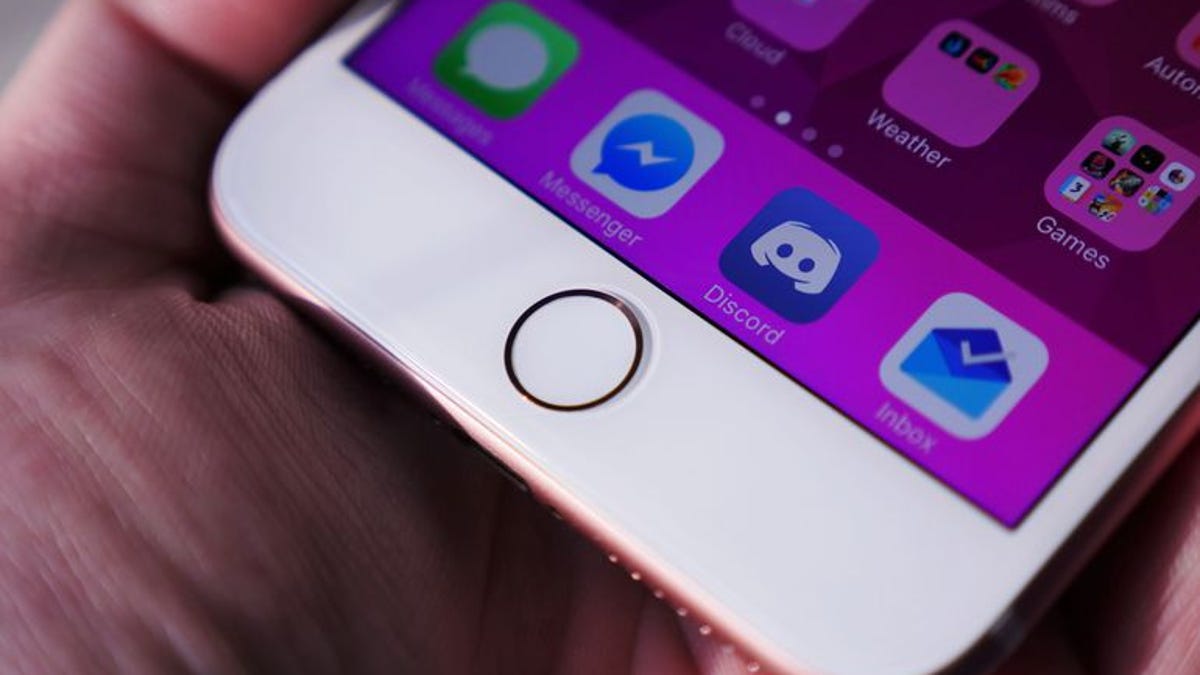Apple ditches the home button on iPhone X
Get ready, that round dip used for just about everything on your phone is no more. Now it's all about face recognition.

Bye bye, home button.
It's the home button swan song on Apple's new iPhone X.
Apple revealed Tuesday it's getting rid of one of the most well-known features in it's new high-end smartphone -- what's known as the "home button." This little tool is used to wake up your phone and take you home. It's also where you scan your fingerprint to unlock the phone. Now, on the iPhone X, you just tap the device's screen to wake it up and look at it to unlock it.
"With iPhone X, the iPhone is locked until you look at it and it can recognize you," said Phil Schiller, Apple's senior vice president of worldwide marketing. "We call this Face ID."
Apple made the announcement during its annual fall iPhone event. This year the company held its confab at the Steve Jobs Theater on its new campus, called Apple Park. It's been 10 years since Steve Jobs first introduced the device in January 2007, calling it "a revolutionary and magical product that is literally five years ahead of any other mobile phone." It's been credited for changing the way we live and has also turned Apple into the most profitable company in the world.
Over the last decade the iPhone has experienced quite an evolution. It went from a small, thick piece of hardware that could handle a handful of apps to today's slim front-and-back glass phone that comes without a headphone jack or home button.
"Now, 10 years later it is only fitting that we are here in this place, on this day," said Apple CEO Tim Cook . "This is iPhone X. It is the biggest leap forward since the original iPhone."
Ditching the home button seems like a radical move for Apple, but actually the company has already been culling people away from the tool. When Apple launched its iPhone 7 and 7 Plus in 2016, it introduced a solid-state panel with a slight dip in the screen which used a subtle vibration to simulate a button press, rather than have a full-fledged home button. Apple's new generation of iPhones unveiled on Tuesday, the iPhone 8 and 8 Plus, still have that vibration and dip in the screen. It's only the high-end iPhone X that comes home button free.
The iPhone X's new all-screen design features front-and-back glass and doesn't leave room for a bottom bezel, which means the physical home button can't fit there either. Now, the way to wake up the iPhone X is to just tap on the screen. And the way to unlock the phone is to just look at it. That's because of Apple's new Face ID feature that using face recognition to identify the user and open the phone.
The biometric security works by using the phone's front-facing camera to register your facial structure as your password. That means that if someone who's not you tries to unlock your iPhone X, they'll be out of luck. Apple says it adds convenience to unlocking your device without lifting a finger.
More from Apple's event
- iPhone X: No home button, OLED screen, wireless charging
- Apple TV 4K: New $179 Apple streamer adds HDR, better gaming
- Full coverage of Apple's event
"This is an important part and a big step forward in the iPhone experience," Schiller said. "Nothing has ever been simpler or more natural."
While people are used to the home button, it's also brought some headaches in past. In Apple forums, people have complained of the button going on the fritz. Either it wouldn't respond to the fingerprint touch, or it wouldn't "press."
It's to be seen whether the iPhone X will be the answer to those issues or bring its own host of complaints. It's also to be seen whether people will be able to get used to facial recognition and say goodbye to the home button.
CNET's Shara Tibken contributed to this report.
Apple Sept. 12 iPhone event live coverage: Follow CNET's live blog in real time.
iPhone X, iPhone 8: Everything we know about Apple's new iPhones.

